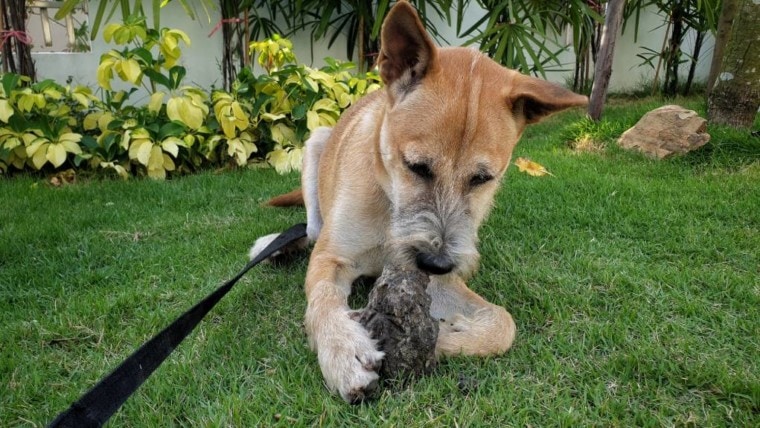
Click to Skip Ahead
Some dogs are known for gleefully consuming items that aren’t food. Socks, underwear, toys, ponytail holders, furniture, you get the idea. However, one of the most common non-food items that dogs eat is rocks. It’s an odd thing for us to see because it just seems so random to see your dog walking along, enjoying his day, and then suddenly grabbing a mouthful of the neighbor’s garden gravel.
Should you be concerned about your dog eating rocks? Why does your dog eat rocks, and how the heck can you put a stop to it?
 Is It Dangerous for Dogs to Eat Rocks?
Is It Dangerous for Dogs to Eat Rocks?
Well, it certainly isn’t ideal! Dangerous, though? That depends. The factors that can influence whether a rock is dangerous to your dog include the size and age of your dog, the size and shape of the rock, and the composition of the rock or dangerous chemicals that may be on it, like pesticides. There’s certainly no benefit to letting your dog eat rocks and it carries the risk of causing an intestinal blockage, internal rupture, internal hemorrhage, poisoning, constipation, and rectal tears. Keep reading to understand why dogs eat rocks.

The 5 Medical Reasons Why Dogs Eat Rocks
1. Malnutrition
Did you know that a dog doesn’t have to be underweight to be malnourished? Malnourishment refers to something in your dog’s nutritional needs not being met. This means that if you have an overweight dog, they can still be malnourished. The type and quality of food you’re giving your dog should be evaluated routinely to ensure it is still meeting your dog’s needs.
Malnourishment in dogs is generally due to starvation, like in stray and abandoned dogs, or being fed a nutritionally deficient diet. This commonly occurs when people begin cooking for their dog or feeding a raw diet without understanding the nutrition a dog requires. If you’re interested in changing your dog’s diet, consult your vet or a veterinary nutritionist.
Click Here to Save 50% with Ollie at Ollie Fresh Dog Food
2. Vitamin Deficiencies
There are multiple things that can cause vitamin deficiencies in dogs. Oftentimes, vitamin deficiencies go hand in hand with malnutrition. However, some dogs may experience vitamin deficiencies related to illness or disease. For example, diarrhea can cause nutrient deficiencies by not allowing the body to absorb all needed vitamins as the food is digested. Certain types of cancer can also block vitamin absorption.
3. Parasites
Some internal parasites that dogs are prone to can cause your dog to want to eat strange non-food items, including rocks. This is often due to the parasites blocking nutrient absorption in your dog’s gastrointestinal tract. Dogs with parasites who are eating rocks are often experiencing vitamin deficiencies and malnutrition. See how this all connects?
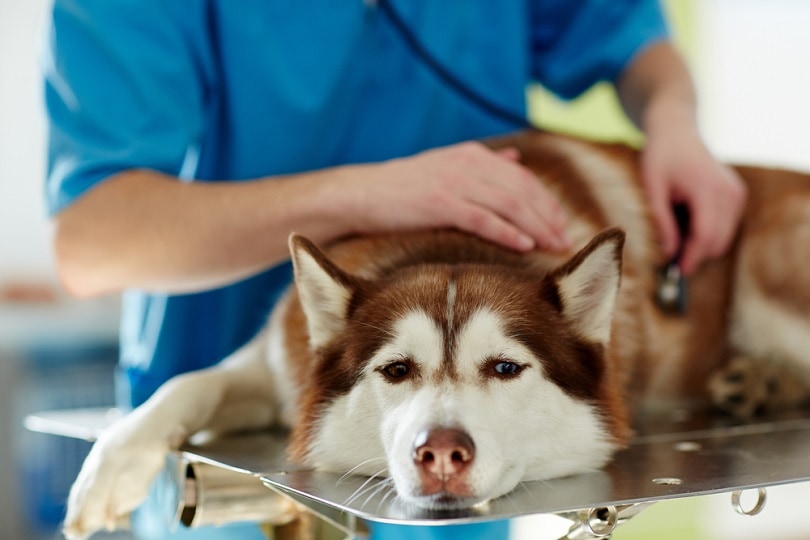
4. Diabetes
Diabetes is a serious but treatable medical condition that can cause your dog to eat rocks due to excessive hunger or nutrient deficiencies that are developing due to the disorder. Typically, there are other symptoms associated with diabetes, like excessive water consumption and excessive urination. If you think your dog may have diabetes, a vet visit is in order.
5. Anemia
Anemia can be caused by multiple things, but iron-deficiency anemia is most likely to cause your dog to begin eating rocks and other unusual things. Iron-deficiency anemia can be caused by some form of blood loss, whether it’s acute, like after a major surgery, or chronic, like a slowly bleeding tumor. Iron is a vital mineral because it allows the body to transport oxygen in the red blood cells. If your dog is lacking in iron, it may begin to crave mineral-based things, like rocks and dirt, in an attempt to correct the deficiency.
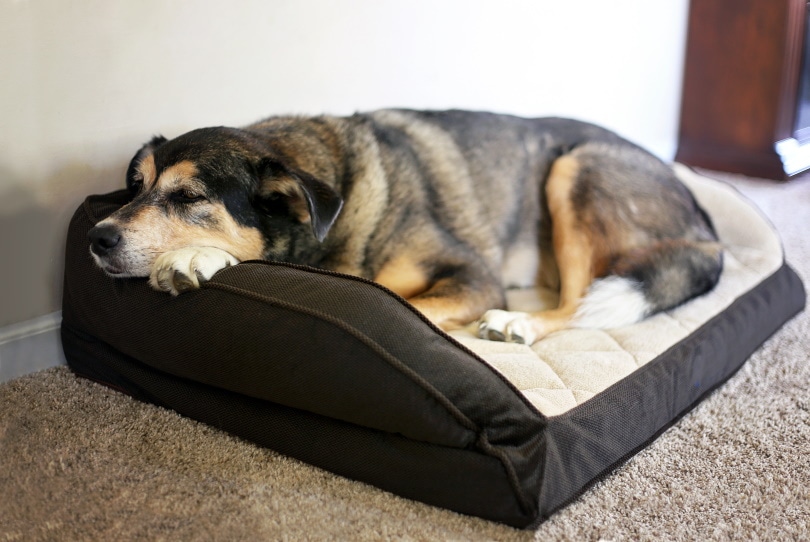
The 3 Psychological Reasons Why Dogs Eat Rocks:
6. Anxiety and Stress
Change, fear, and negative interactions can all lead to anxiety and stress in your dog. If your dog is experiencing some form of anxiety and stress, it may begin to eat inappropriate things, like rocks, to self soothe. If your dog seems anxious and begins eating rocks, try to determine the cause.
7. Pica
Technically, pica is a medical condition that involves animals and people eating non-food items. However, there is a psychological component to pica. All of the reasons on this list lead to pica if your dog is eating rocks, but there isn’t always a medical or behavioral explanation for it. Sometimes, your dog may just develop unexplained pica or may just like to eat rocks.
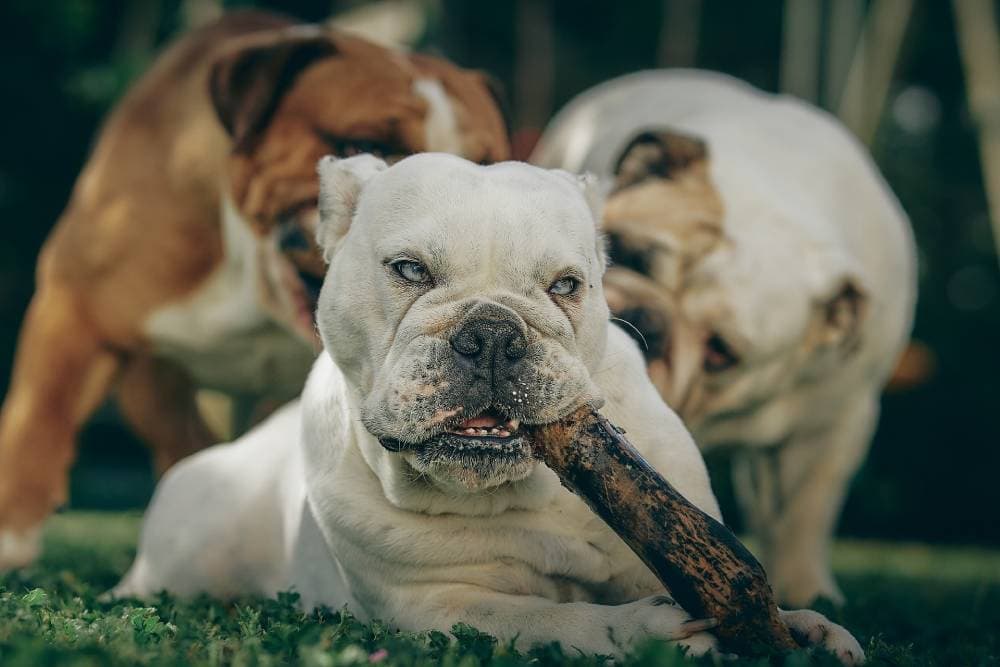
8. Confusion
If your dog is confused because of old age, medical conditions, or medications, you may see your dog eating rocks. This is simply because your dog’s level of confusion has reached a point where their brain is telling them that eating rocks is an appropriate thing to do. If your dog suddenly seems confused, you should get it to a vet immediately.
The 3 Behavioral Reasons Why Dogs Eat Rocks:
9. Boredom
Bored dogs become destructive. Keeping your dog active and entertained is just part of dog ownership. Eating rocks due to boredom is more common in puppies and young dogs, but any dog may begin to do it. Provide your dog with novel toys and games, as well as daily exercise. You may even need to begin participating in dog sports to help prevent boredom in your dog.

10. Teething
Just like with human babies, puppies are prone to putting anything and everything in their mouth. Sometimes, they do this simply because they’re exploring the world around them. However, a puppy eating rocks can also indicate your puppy is uncomfortable due to teething. If your dog seems excessively uncomfortable, you’ll need to talk to your vet. Otherwise, teething is a perfectly normal part of a puppy growing and there is little you can do about it.
11. Attention Seeking
Dogs are exceptionally intelligent. Whether your dog is manipulative and just wants you to spend all of your time with them or you’re truly neglecting time with your dog, dogs may use eating inappropriate things, including rocks, as a form of attention seeking. If your dog knows that you suddenly begin to pay attention to them when they eat rocks, they may begin doing it in an attempt to garner your attention.

How to Stop Dogs From Eating Rocks
Make Alterations
One of the easiest ways to keep your dog from eating rocks is to modify the space to not allow your dog to eat rocks. Obviously, this isn’t possible if the dog is eating the rocks at the park or in the neighbor’s yard, but if your dog loves to snack on the rocks in your garden or yard, then modifying the area can quickly put an end to the behavior.
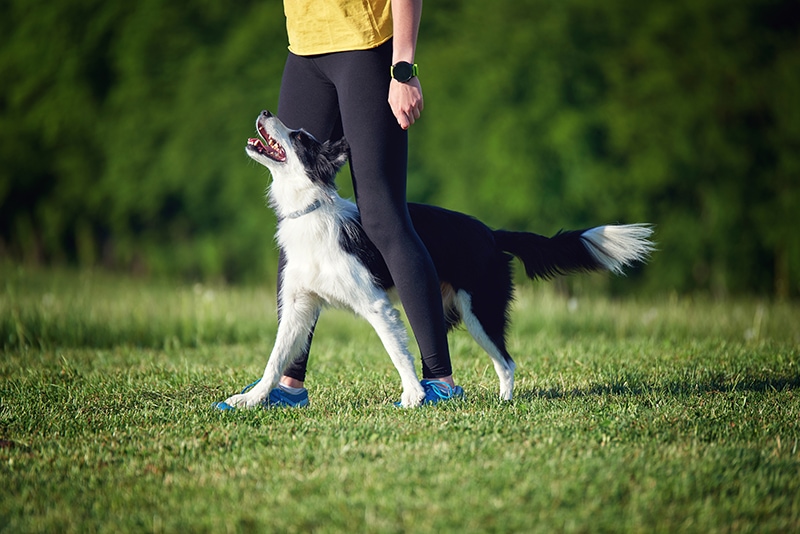
Talk to Your Vet
If your dog has suddenly become a rock eater, a vet visit is needed. Your vet can help you rule out medical causes and determine what behavioral or psychological causes may be causing the behavior. There are some serious problems that can lead to rock eating, so this is not something that should be skipped when working to get your dog to stop eating rocks.
Behavior Modification
If your dog’s rock eating is psychological or behavioral, behavior modification training can be an effective way to stop the behavior. Positive reinforcement and balanced training can both work well to stop this behavior depending on your dog and your training skills. If you’re not sure how to train your dog to stop eating rocks, then consult with a veterinary behaviorist or a dog trainer.
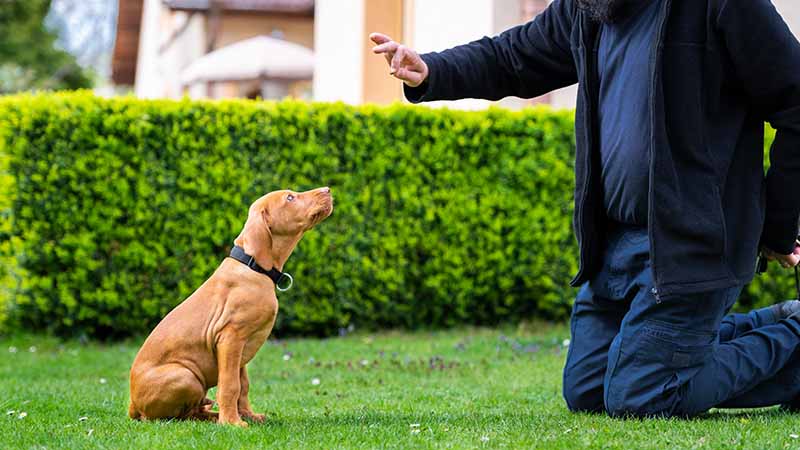
Muzzle Training
Muzzles get a bad rap due to their appearance. However, a well-fitting muzzle is an exceptional tool that can be used to help dogs with tons of issues, from reactivity to eating rocks. Muzzle training is a slow process and choosing a muzzle that fits your dog properly is important. A muzzle should allow your dog room to pant, drink water, and for training purposes, accept treats. A muzzle should not be left on your dog while unattended but if your dog eats rocks on your daily walk, a muzzle can serve as a barrier to keep them from eating the rocks while you work on other forms of behavior modification or medical treatment.
Pay Attention
It sounds simple, but oftentimes we overlook this one. If your dog keeps eating rocks every time you let him into the backyard, then you should be going out there with him and blocking the behavior. The more attention you pay to the problem, the more knowledge you’ll acquire about why your dog is doing the behavior. This will set you and your dog up for success as you work to stop rock eating.
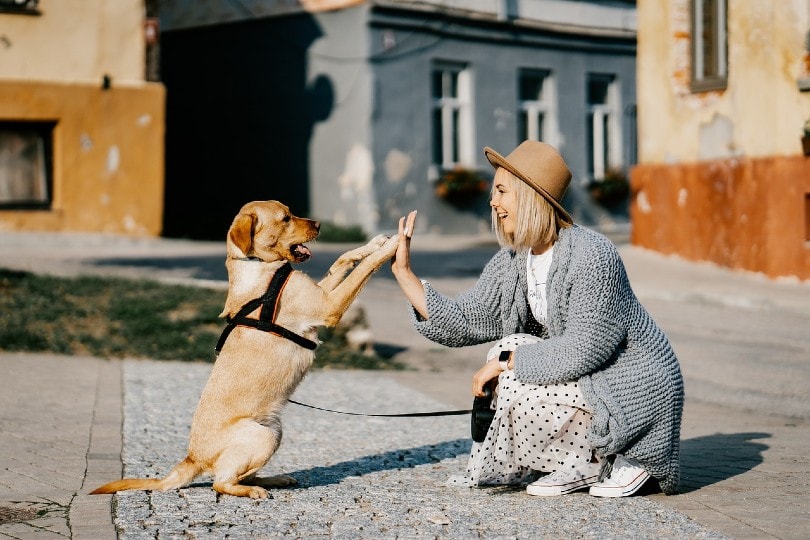
 In Conclusion
In Conclusion
Dogs eating rocks can indicate serious problems, so it’s important to talk to your vet and ensure your dog is healthy if they are eating rocks. Medical, psychological, and behavioral conditions can all lead to rock eating, so keeping track of your dog’s behaviors aside from rock eating can help you determine a cause. Sometimes, there isn’t a cause, and you’ll have to work with your dog to train away the behavior. Some dogs will always be rock eaters, so finding other ways to put an end to the behavior, like modifications and muzzle training, will help you keep your dog protected from its own bad decisions.
See also:
- Why Does My Dog Eat Tissues? 3 Likely Reasons
- Can Dogs Eat Bread? Vet-Reviewed Nutrition Facts & FAQ
Featured Image Credit: RJ22, Shutterstock

 Is It Dangerous for Dogs to Eat Rocks?
Is It Dangerous for Dogs to Eat Rocks?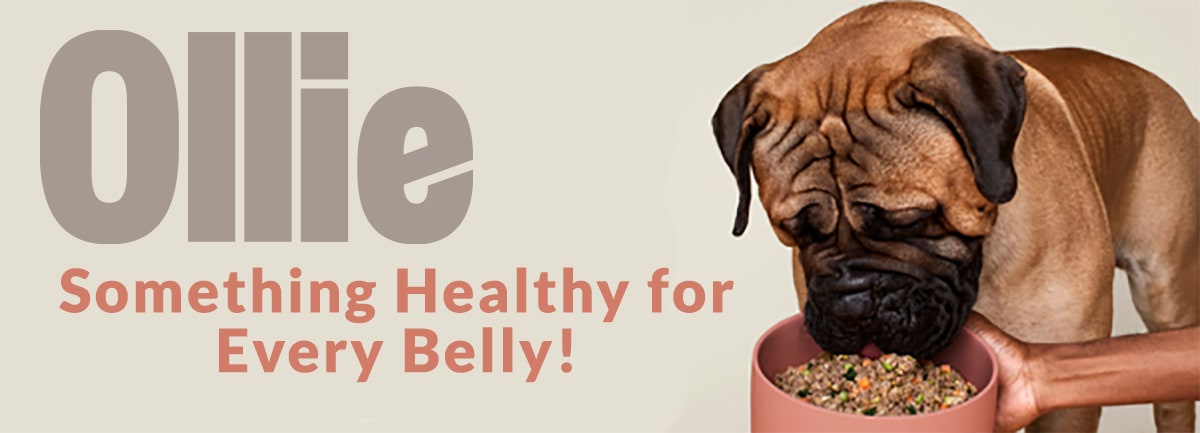
 In Conclusion
In Conclusion



